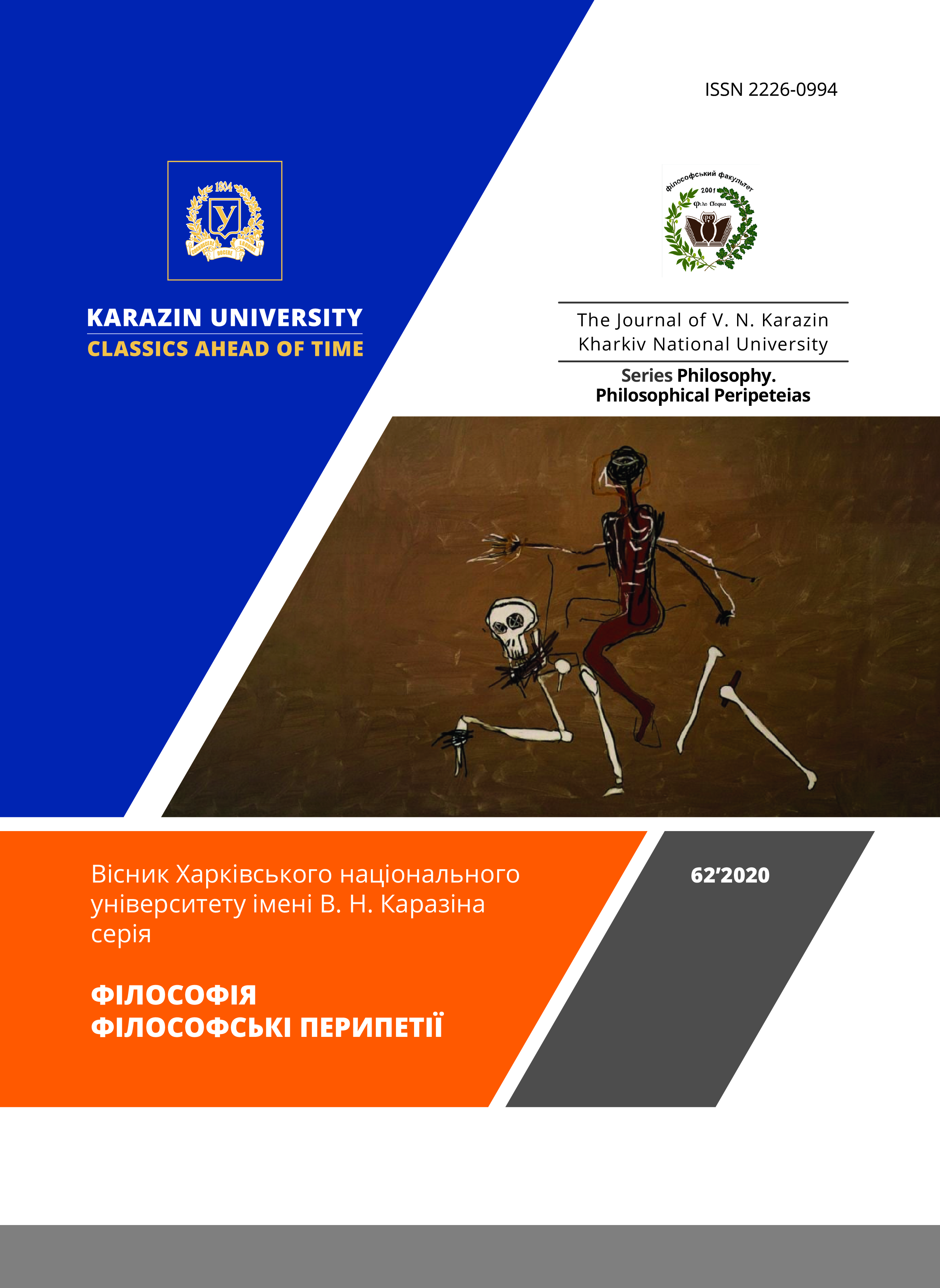PHILOSOPHICAL REVELATION OF NON-ACADEMIC EDUCATION FORMS
Abstract
The non-academic education as the development of socio-cultural experience that takes place outside the pedagogically organized process is considered in the article. The freedom of human cognitive activity, the expansion of the range of his hobbies, the enrichment of the spiritual world is ensured through a network of institutions of non-academic education. Non-academic education institutions transfer the knowledge and skills necessary in the field of work, which does not belong directly to the scientific content of professional activity. The term “non-academic education” is not yet widespread, it is used mainly by practitioners in the field of solving general problems of education, based on human educational needs. However, the reality it reflects is well known to all, it is learning in the process of daily life. In essence and content, it is the same process of acquiring knowledge and skills, deepening worldview and enriching personal potential, which is in academic education. The difference is that it takes place outside the walls of institutions that are part of the education system. Non-academic education takes place in social institutions that perform other functions in the social division of labor: in the family, in the field of work, in various formal and informal groups and associations. A clear training goal is not necessary. Non-academic education is spontaneous, without time limits, not certified, unlike academic. Non-academic education may have some kind of documentary evidence, albeit of a non-state type. A teacher in academic education is necessarily an employee of an educational institution, and in non-academic education it is an employee, a coach, and a teacher. Training in non-academic education can be carried out on the educational portal through social services, distance learning courses of various organizations, mass open courses.
Downloads
References
Gender Open University: Gender Literacy and the Culture of Social Workers. (2020). Center for Gender Culture. Retrieved from http://www.genderculturecentre.org/genderniy-vidkritiy-universitet-ge.
cMOOC versus xMOOC. (2017, October 25). SlideShare. Retrieved from https://www.slideshare.net/Marcobertolini/cmooc-versus-xmooc.
Coursera [Website]. (2020). Retrieved from https://www.coursera.org.
Distance Courses for Teachers of the National Technical University “Kharkiv Polytechnic Institute” [Website]. (2020). Retrieved from http://dl.khpi.edu.ua.
EdX [Website]. (2020). Retrieved from https://www.edx.org.
Klepko, S. (2011). Ontological Problems in the Subject Field of Philosophy of Education. Philosophy of Education, 1–2(9), 174–193. (In Ukrainian).
Kyvlіuk, O. (2018). Media Education. In V. P. Andrushchenko (Ed.), Philosophy of Education (pp. 168–174). Kyiv: NPU named after M. P. Dragomanov. (In Ukrainian).
Lazarenko, O. (2011). Philosophy of Adult Education in the Context of the Practical Paradigm of Lifelong Learning: A European Example for Ukraine. Philosophy of Education, 1–2(10), 255–265. (In Ukrainian).
Rybalchenko, L. V., & Silina, I. S. (2018). Distance Learning: World Experience and Use in Ukraine. In Formation of a Modern Management Model and Improving the Quality of Management in the Higher Education System (Dnipro, 2018). International Scientific-Practical Conference Proceedings (pp. 257–260). Dnipro: University of Customs and Finance. (In Ukrainian).
Udacity [Website]. (2020). Retrieved from https://www.udacity.com.

This work is licensed under a Creative Commons Attribution 4.0 International License.
Authors who publish with this journal agree to the following terms:
- Authors retain copyright and grant the journal right of first publication of this work under the terms of a license Creative Commons Attribution License 4.0 International (CC BY 4.0).
- Authors are able to enter into separate, additional contractual arrangements for the non-exclusive distribution of the journal's published version of the work (e.g., post it to an institutional repository or publish it in a book), with an acknowledgement of its initial publication in this journal.
- Authors are permitted and encouraged to post their work online (e.g., in institutional repositories or on their website) prior to and during the submission process, as it can lead to productive exchanges, as well as earlier and greater citation of published work.






3.gif)




